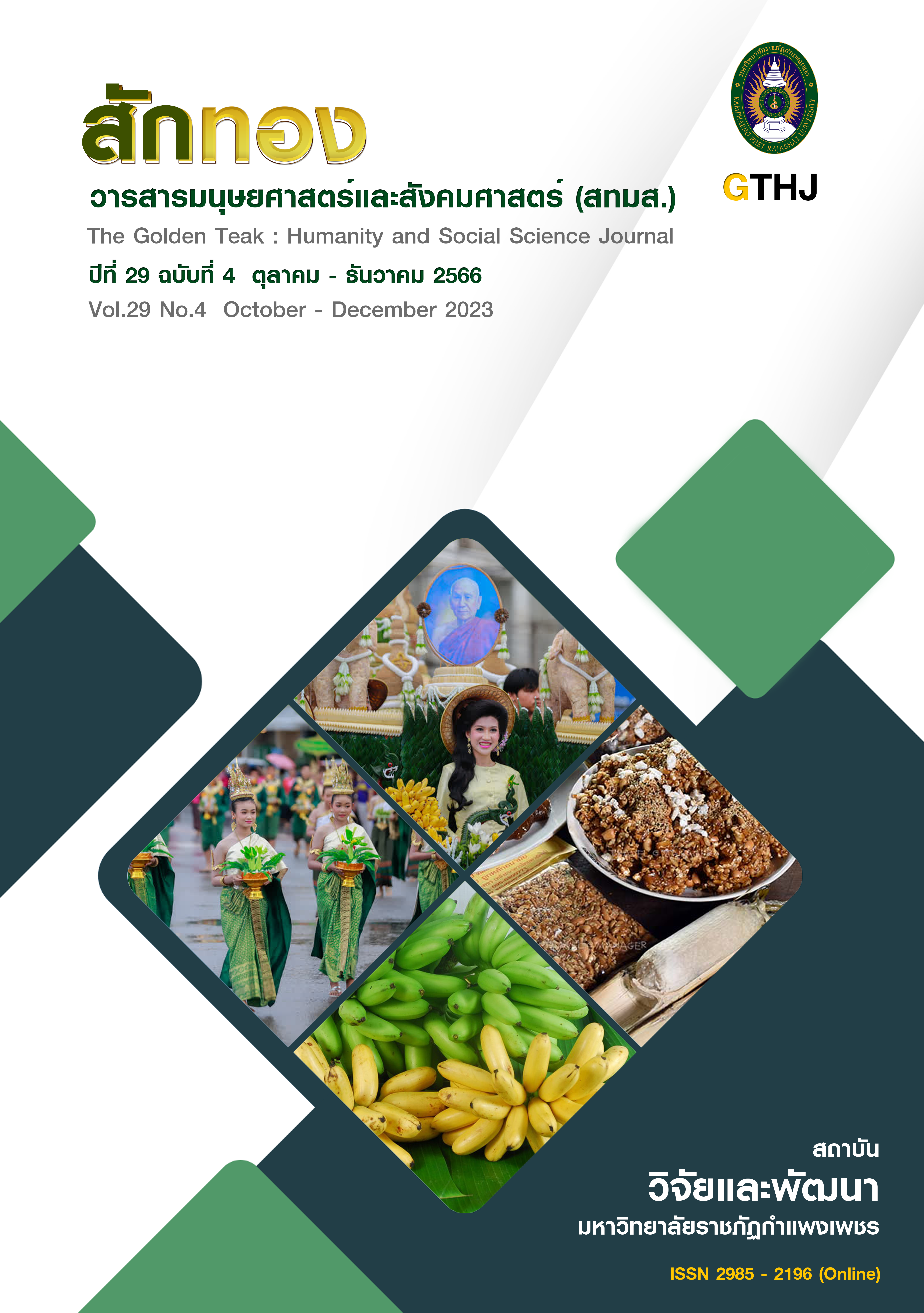A Study on People's Attitudes towards Religion and Religious Change in the Context of Thai Society
Main Article Content
Abstract
This research aims to survey people's attitudes towards religion and religious changes in order to provide important information for relevant agencies to formulating guidelines for the development of the quality of Thai society. This was a survey under the 2018 International Social Survey Programme project (ISSP). The sample consisted of 1,535 Thai people aged 18 years and over, randomly selected according to multi-stage sampling. The research tool was a 39-items opinion survey on religious attitudes and religious change with a Cronbach's alpha coefficient of .77. The data were analyzed by using a percentage, mean and standard deviation. The results showed that the sample group had the highest level of confidence in religious organizations compared to other major social organizations. Most of the respondents agreed that religion brings more peace than conflict (50.5 percent), religious organizations have moderate social power (35.6 percent), people would be acceptable if heterosexual people or religious views differ greatly from their own to marry with relatives (44.3 percent), most of the respondents participating in religious activities several times a year (31.9 percent), most of the respondents religion does not barrier to gender equality (40.3 percent) and if legislation conflicts with the principles and religious teachings with the majority of people more likely to follow a religion than to follow that law (52.5 percent). In addition, most of the respondents had the most positive attitudes towards Buddhists (57.4 percent) and positive attitudes towards atheists or those with the least religious beliefs (21.1 percent).
Article Details

This work is licensed under a Creative Commons Attribution-NonCommercial-NoDerivatives 4.0 International License.
บทความที่ได้รับการตีพิมพ์เป็นลิขสิทธิ์ของวารสาร สักทอง : วารสารมนุษยศาสตร์และสังคมศาสตร์ สถาบันวิจัยและพัฒนา มหาวิทยาลับราชภัฏกำแพงเพชร
ข้อคิดเห็นใดๆ ที่ปรากฎในวารสารเป็นวรรณกรรมของผู้เขียนโดยเฉพาะ ซึ่งมหาวิทยาลัยราชภัฏกำแพงเพชรและบรรณาธิการไม่จำเป็นต้องเห็นด้วย
References
ISSP Research Group. (2020). International Social Survey Programme: Religion IV-ISSP 2018. GESIS Data Archive, Cologne. ZA7570 Data file Version 2.1.0, https://doi.org/10.4232/1.13629.
Mamout, A. (2014). Separation between the State and the Church : Concepts of Legal Philosophy and Public Law. Bangkok : October Press. [In Thai]
Narajettho, Y. & Thonginjan, J. (2019). Coexistence of Peoples in Multicultural Societies of Thailand. Mahachula Academic Journal, 7(1), 102-118. [In Thai]
National Statistical Office. (2014). The 2014 survey on conditions of society, culture and mental health (Thai happiness). Bangkok : Statistical Forecasting Division. [In Thai]
National Statistical Office. (2018). The 2018 survey on conditions of society, culture and mental health. Bangkok : Statistical Forecasting Division. [In Thai]
Office of the Royal Society. (2013). Thai Dictionary of Royal Institute Edition B.E. 2554. (2 nd ed.). Bangkok : The Royal Institute. [In Thai]
Panpaisan, P. (2020). A Comparative Study and Analysis on the Using of Orthodox Christianity as a Political tool in Russia during the Empire and the Russian Federation. Bachelor of Arts, Thammasat University. [In Thai]
Parkaw, P. & Chirawatkul, S. (2008). Happy, Sadness and Mental Status of Male Homosexuals in Isan Community. Journal of the Psychiatric Association of Thailand, 53(4), 377-391. [In Thai]
Phantharangsi, S. (2006). Comparative Religions. (10 th ed.). Bangkok : Mental Health. [In Thai]
Temcharoenkit, S. (2018). Beliefs in Heaven and Hell on Crime Rates in Thailand. Journal of Criminology and Forensic Science, 4(2), 53-66. [In Thai]
ThaiPBS. (2018, January 29). The survey found more than 1.1 billion non-religious people around the world. [Online]. Available : https://news.thaipbs.or.th/content/269750 [2022, February 3]. [In Thai]


